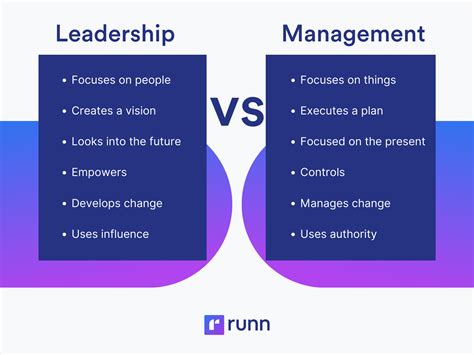As the tech industry continues to evolve, the roles of tech leads and managers have become increasingly important. While both positions play crucial roles in the success of a company, there are significant differences between them. In this article, we'll explore the 5 key differences between a tech lead and a manager, helping you understand which role is best suited for your career goals and aspirations.
First and foremost, it's essential to understand that a tech lead and a manager are not interchangeable terms. A tech lead is a technical expert who oversees a team of engineers or developers, while a manager is a leadership role that focuses on the administrative and business aspects of a company. Here are the 5 key differences between a tech lead and a manager:
Technical Expertise vs. Leadership Skills

A tech lead is expected to have deep technical expertise in their field. They should be proficient in programming languages, software development methodologies, and other technical aspects of the company's products or services. In contrast, a manager's primary focus is on leadership and management skills. They need to be able to motivate and inspire their team, make strategic decisions, and drive business outcomes.
While a tech lead may be involved in technical decision-making, their primary responsibility is to ensure that their team is delivering high-quality technical solutions. On the other hand, a manager's primary responsibility is to drive business outcomes, which may involve making tough decisions that impact the company's bottom line.
Day-to-Day Responsibilities
The day-to-day responsibilities of a tech lead and a manager are also significantly different. A tech lead is typically responsible for:
- Overseeing the technical development of a project or product
- Mentoring and guiding junior engineers or developers
- Collaborating with cross-functional teams to deliver technical solutions
- Ensuring that technical deliverables meet the company's quality standards
- Staying up-to-date with the latest technological trends and advancements
In contrast, a manager's day-to-day responsibilities may include:
- Developing and executing business strategies
- Managing budgets and resources
- Leading and motivating a team of employees
- Making strategic decisions that impact the company's bottom line
- Communicating with stakeholders and customers
Communication Styles

The communication styles of a tech lead and a manager are also distinct. A tech lead tends to focus on technical details and may communicate primarily with their team and other technical stakeholders. They may use technical jargon and terminology to describe complex technical concepts.
In contrast, a manager needs to be able to communicate effectively with a wide range of stakeholders, including customers, investors, and other business leaders. They need to be able to distill complex technical concepts into simple, easy-to-understand language that resonates with non-technical stakeholders.
Decision-Making Authority
The decision-making authority of a tech lead and a manager is also different. A tech lead typically has the authority to make technical decisions that impact the development of a project or product. However, they may not have the authority to make business decisions that impact the company's bottom line.
In contrast, a manager has the authority to make strategic business decisions that impact the company's bottom line. They may need to make tough decisions that involve trade-offs between competing priorities, such as cost, quality, and timeline.
Career Paths

The career paths of a tech lead and a manager are also distinct. A tech lead may choose to continue down a technical path, becoming a technical architect or a principal engineer. Alternatively, they may choose to move into a management role, becoming a manager or a director.
In contrast, a manager may choose to continue down a leadership path, becoming a director or a vice president. Alternatively, they may choose to move into a specialized role, such as a product manager or a program manager.
Salary and Compensation
The salary and compensation of a tech lead and a manager are also different. A tech lead's salary is typically based on their technical expertise and experience. According to Glassdoor, the average salary for a tech lead in the United States is around $124,000 per year.
In contrast, a manager's salary is typically based on their leadership experience and business acumen. According to Glassdoor, the average salary for a manager in the United States is around $154,000 per year.





In conclusion, while both tech leads and managers play critical roles in the success of a company, there are significant differences between the two roles. A tech lead is a technical expert who oversees a team of engineers or developers, while a manager is a leadership role that focuses on the administrative and business aspects of a company.
If you're considering a career as a tech lead or a manager, it's essential to understand the differences between the two roles. By doing so, you can make an informed decision that aligns with your career goals and aspirations.
We'd love to hear from you! What are your thoughts on the differences between tech leads and managers? Share your experiences and insights in the comments below.
What is the primary responsibility of a tech lead?
+The primary responsibility of a tech lead is to oversee the technical development of a project or product. They are responsible for ensuring that technical deliverables meet the company's quality standards.
What is the primary responsibility of a manager?
+The primary responsibility of a manager is to drive business outcomes. They are responsible for developing and executing business strategies, managing budgets and resources, and leading and motivating a team of employees.
What are the key differences between a tech lead and a manager?
+The key differences between a tech lead and a manager include their technical expertise, leadership skills, decision-making authority, career paths, and salary and compensation.
